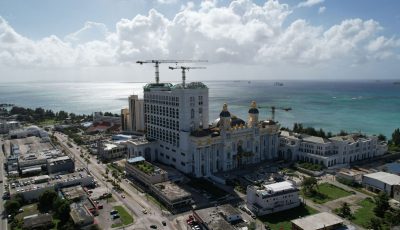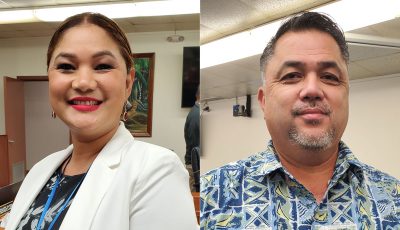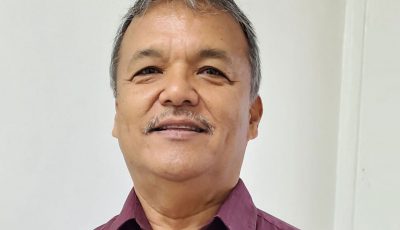Saipan casino commission looks to regulate ‘junkets’
The Commonwealth Casino Commission is refining its regulations on “junkets” that may be hosted by Saipan’s exclusive casino licensee, Best Sunshine International, Ltd. This will the allow the commission to establish fees and regulate “promoters” who bring in high-rollers from around the world to play at Saipan’s planned casino tables, according to the commission’s executive director, Edward C. Deleon Guerrero.
According to uscasinofinder.com, a junket is trip financed by a casino and organized by a junket operator to bring a group of gamblers to the casino.
The regulations of junkets, which are allowed under Public Law 18-56, will be put on the table again at the commission’s planned Sep. 11 meeting. It was deferred at their Aug. 27 meeting last week.
Guerrero told Saipan Tribune they are looking at other jurisdictions on how they regulate junkets, but they already have a proposed set of regulations.
“We are trying to regulate the entities that want to participate in the junket,” Guerrero said.
Basically, agreements between casino “promoters” that arrange high-rollers to come out and play at Best Sunshine’s casino will be regulated by the commission.
Guerrero said the commission is looking to license these promoters, requiring them to be licensed by the commission.
“We are requiring them that they pay the fee for those licenses,” he said, adding that there will be “vetting” or background investigations required as part of obtaining the license.
“… And once we license them, then they will be authorized to proceed in terms of arranging those customers to come and play with Best Sunshine,” he added.
At their next meeting, the commission can adopt the regulations in two ways. One, they can approve it as an “emergency adoption” that will be good for a maximum of 120 days. Another option is adoption for announcement in the Commonwealth Register. That will be announced in the Commonwealth Register for a minimum of 30 days or longer for the public to comment on it. At the end of the 30 days or somewhere before the 120 days are over, the regulations can be adopted as permanent regulations.
“We normally do both [options],” Guerrero said, adding that this way everybody has fair access to review the regulations.



























